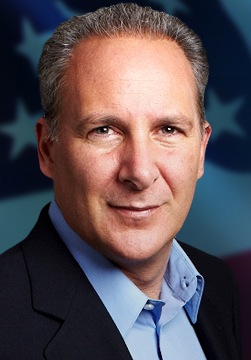Bail Me Out Bennie
Now that the Fed and the Treasury Department have clumsily come to the rescue of the financial titans of Wall Street, it is now politically dangerous to resist similar pleas from just about everybody else. Populism is emerging as a dominant theme is this election year, and with so much largesse showered on Bear Stearns and JP Morgan Chase, politicians are demanding even more generous terms for consumers. In Washington, it seems that two wrongs apparently make a right. Another downside to corporate bailouts is that they provide the critics of free market capitalism with plenty of excuses to weigh down American economic vitality with even more unnecessary regulation.
In the first place, the current mess did not result from a failure of the free market, but from too much government interference. The real estate bubble, and the shaky securitized products it spawned, resulted from the Fed artificially setting interest rates too low. Had interest rates been allowed to find their market levels, rather than be set by government decree, the real estate bubble never would have been inflated in the first place.
In a nation short on savings and heavy with debt, the free market would naturally set interest rates quite high. With lots of demand for credit, but a limited supply of savings, the risk of lending and therefore the price of credit (interest rates) would be high. Although onerous to borrowers, high rates would have both encouraged saving and discouraged borrowing. In the end, these market forces would reduce interest rates and produce a more stable balance between savings and consumption. However, the Fed did not want American consumers to be subjected to free market discipline that might otherwise reign in their non-stop spending. After all, reckless consumption was falsely believed to be the engine of our prosperity.
So the Fed fixed the price of credit (interest rates) well below the rate that would have been set by the free market. This sent false economic signals to the market that more savings were available than actually existed, leading to an over-investment in housing. Also, by keeping the rate of interest below the rate of inflation, rampant speculation was encouraged, and the foundation was laid for the very type of mortgage financing that has now come back to bite us.
In the second place, no one on Wall Street should be bailed out. The effects of the bursting of the housing bubble should be dealt with by the market, despite the fact that the underlying bubble itself was a byproduct of government intervention.
Apart from the problems created by interfering with the market’s attempts to restore balance and reallocate resources, bailouts create all sorts of moral hazards. After all, why should bailouts be limited to investment banks or overstretched homeowners? What about renters who also borrowed too much money? What about those behind on their credit cards, auto or student loans? Why shouldn’t they get bailed out? How about small entrepreneurs whose start-up businesses failed -- should they get bailed out as well?
In market economies all sorts of people lose money, sometimes as a result of circumstances entirely beyond their control. While this is clearly not the case for most homeowners and mortgage lenders, some would obviously fall within that category. However, it is not up to government to rescue them. Even if some borrowers and lenders were lead astray by the false economic signals sent by the Fed, they are never-the-less responsible for any losses they might have incurred as a result of following them. The real danger is that while government interference is actually at fault, it’s the free-market that ends up taking the blame.
For a more in depth analysis of our financial problems and the inherent dangers they pose for the U.S. economy and U.S. dollar denominated investments, read my new book “Crash Proof: How to Profit from the Coming Economic Collapse.” Click here to order a copy today.
More importantly, don’t wait for reality to set in. Protect your wealth and preserve your purchasing power before it’s too late. Download my free research report on the powerful case for investing in foreign equities available at www.researchreportone.com .


















